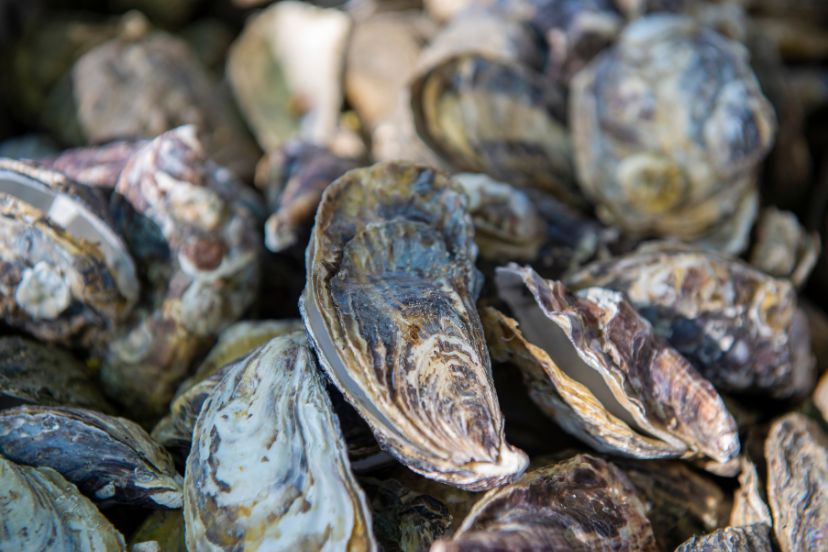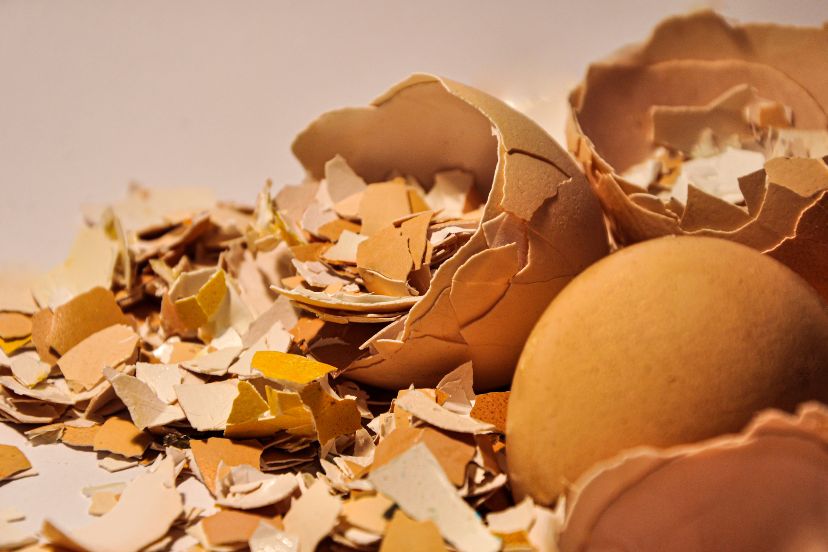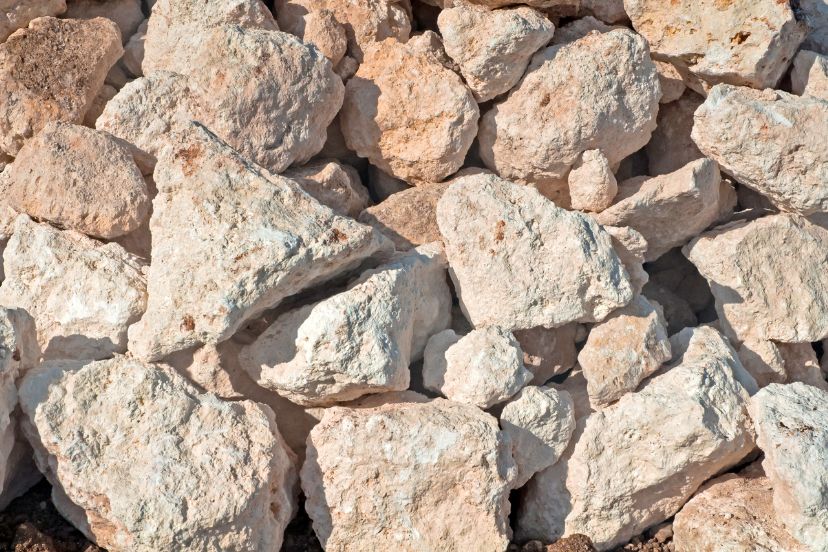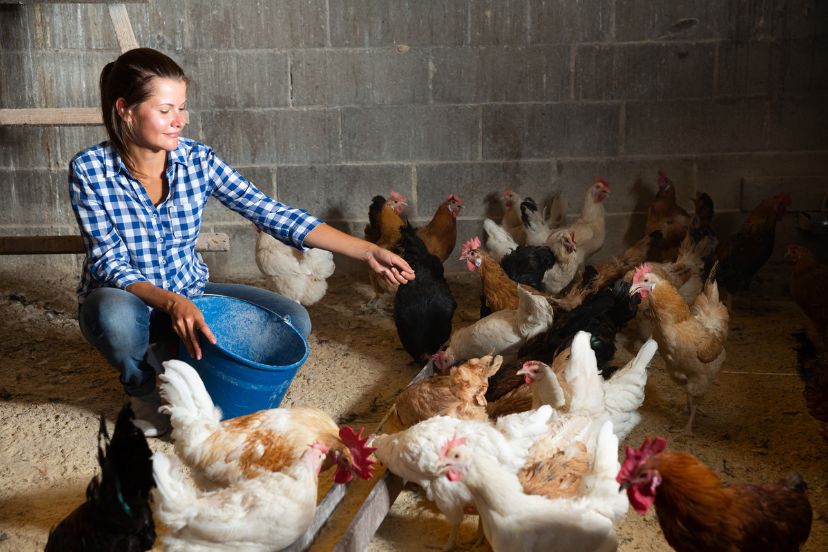Calcium for Chickens: Why and How
What makes a chicken’s eggshell robust and their bones resilient? When I began raising chickens, the significance of calcium was a mystery to me. Can you relate? No stress, many of us have been in that spot.
Why Calcium is Essential for Chickens
Calcium plays an indispensable role in the life of chickens, particularly in the formation of their eggshells. Healthy eggshells are a direct reflection of a chicken’s calcium intake. When there is an inadequacy of calcium in their diet, it becomes evident through the quality of the eggs they produce. Soft-shelled eggs or those with abnormally thin and fragile shells often indicate a calcium deficiency.
For poultry farmers and backyard chicken keepers, this not only affects the quality and marketability of the eggs but also signifies potential health issues for the bird. Proper calcium intake ensures that hens can produce eggs with shells that are sturdy and offer protection to the developing embryo inside.
Furthermore, calcium is pivotal for the overall skeletal health of chickens. Just as in humans, calcium in chickens aids in ensuring bone density and preventing fragility. A deficiency doesn’t just impact egg production; it poses a broader health concern as chickens can suffer from weak or brittle bones. This can make them more susceptible to injuries, affecting their mobility and quality of life.
The adage “as fragile as a bird’s bone” hints at the inherent delicacy of bird skeletons. However, with the right amount of calcium, this fragility can be mitigated, ensuring that chickens have a robust skeletal framework to support their daily activities and overall well-being.
Sources of Calcium for Chickens
Calcium, as we’ve established, is an essential mineral for chickens, and ensuring they have an ample supply in their diet is paramount. So, what are the primary sources from which our feathered friends can derive this crucial nutrient?
Crushed Oyster Shells

Topping the list are crushed oyster shells. These natural wonders are calcium powerhouses. When added to the chicken’s diet, they not only fulfill the calcium needs but also aid in the grinding process in a chicken’s gizzard, helping with digestion. Given their gritty nature, chickens naturally gravitate towards them. It’s a treat to see them peck away, ensuring they’re fortifying their diet. You can easily find these at local feed stores or online poultry supplies.
Eggshells

Recycling takes a whole new meaning with eggshells. Instead of disposing of them, crush the cleaned eggshells and offer them to your chickens. It’s a dual win: an environmentally friendly solution and a brilliant calcium source. However, ensure they are finely crushed to prevent the chickens from developing a taste for their eggs.
Limestone

Limestone, primarily composed of calcium carbonate, is another excellent source of calcium. Many poultry feeds have limestone as a constituent, ensuring a steady calcium supply. But it’s always a wise move to scrutinize the feed label on your next purchase. Some farmers also prefer to buy it separately and mix it in specific quantities based on their flock’s needs.
Calcium-rich Foods

Surprisingly, some of the greens we consume and love can be a fantastic calcium source for chickens too. Foods like kale, spinach, and even dairy products, when given in moderation, can act as supplementary calcium sources. Imagine giving your chickens a mini salad treat, not just for their taste buds but for their health too. Incorporating a mix of these sources ensures a balanced and adequate calcium intake, keeping your chickens happy and healthy.
Signs of Calcium Deficiency
Calcium deficiency in chickens, while a common nutritional disorder, can have serious implications if left unaddressed. One of the most apparent and immediate signs is the quality of the eggs they produce. When a hen doesn’t receive sufficient calcium, the strength of the eggshell is compromised.
Eggs might appear with unusually thin shells, or in severe cases, they might be laid with soft or even absent shells. This not only decreases the marketability and usability of these eggs but also poses risks to the chicken. Soft-shelled eggs can lead to egg binding, a potentially life-threatening condition where the egg gets stuck in the hen’s oviduct.
Beyond egg-related issues, other symptoms can indicate a calcium deficiency in your flock. Chickens may exhibit lethargy, seeming less active or enthusiastic about their usual activities. Their movement might become labored, with evident difficulty walking or standing, stemming from weakened bones and skeletal issues.
In extreme cases, a severe calcium deficiency can even lead to rickets, where bones soften and bend. Given these potential complications, it’s essential for chicken keepers to be vigilant, regularly monitor their flock, and take prompt action if they suspect calcium deficiency. It’s always prudent to prioritize the health of your flock and ensure they receive a balanced and calcium-rich diet.
How to Supplement Calcium for Chickens
Ensuring that your chickens have a steady supply of calcium is only half the battle. The other half is ensuring they consume it in the right manner to meet their needs. How you introduce calcium to your chickens is crucial for their overall health and well-being.
Free-choice Supplementing
The beauty of free-choice supplementing is its simplicity and reliance on the chicken’s natural instincts. By providing a separate container filled with calcium-rich sources like crushed oyster shells, you’re allowing the chickens to decide how much they need. Chickens have an innate ability to determine their dietary needs. When they feel a deficiency or an increased need for calcium, especially during laying periods, they’ll instinctively consume more from the free-choice supplement. This method ensures that the chickens aren’t over-consuming, which can be as detrimental as not getting enough. It’s a passive yet effective method, particularly beneficial for flocks that have varying calcium requirements.
Mixing with Feed
On the other hand, mixing calcium directly with their feed is a more proactive approach. By crushing eggshells finely or adding ground limestone to their regular feed, you’re ensuring that they receive a consistent amount of calcium every time they eat. This method is particularly useful for ensuring uniform intake across the flock. It can be especially beneficial for flocks where eggshell quality has been consistently poor or where there’s a concern about individual birds not seeking out the free-choice supplements. However, when employing this method, it’s essential to ensure the mix is consistent and the calcium sources are adequately crushed, allowing for easy digestion and absorption.

Both methods have their merits, and depending on the specific needs of your flock, you might opt for one over the other or even a combination of the two. The key is consistent monitoring and being responsive to the evolving needs of your chickens.
Potential Risks of Too Much Calcium
While ensuring that your chickens receive adequate calcium is paramount, it’s equally crucial to be vigilant about not over-supplementing. Just as deficiencies can lead to health issues, an excess of calcium can also pose significant challenges to the well-being of your flock.
When chickens ingest excessive calcium, one of the primary organs that bears the brunt is the kidney. The kidneys play a pivotal role in filtering and excreting excess minerals from the body. An overload of calcium places undue stress on these organs, potentially leading to kidney stones or more severe renal conditions. Over time, this might result in decreased kidney function, making it harder for the chicken to filter waste and excess minerals. This, in turn, can impact the bird’s overall health, reducing its vitality and potentially shortening its lifespan.
Moreover, an excessive intake of calcium can disrupt the balance of other essential minerals in a chicken’s body, particularly phosphorus. Calcium and phosphorus share a symbiotic relationship where the balance between the two affects the absorption and efficiency of both minerals. If there’s too much calcium, it can impede the absorption of phosphorus, leading to other skeletal issues and metabolic disturbances. Therefore, while it’s tempting to ensure our chickens have all they need, it’s imperative to remember that balance is key. Always strive for moderation and monitor any changes in your flock’s health or behavior. Remember, when it comes to supplements, more is not always better.
FAQs
How much calcium do laying hens need? Typically, laying hens require about 3.25% to 3.5% calcium in their diet.
Can chicks be given calcium? Chicks don’t need additional calcium. It’s best to wait until they start laying eggs.
How can I tell if my chicken has too much calcium? Signs include decreased appetite, weak legs, and increased thirst. Always consult with a vet if unsure!
Do all chicken feeds contain calcium? Most layer feeds have added calcium. But it’s always good to check the label.
Can I give my chickens human calcium supplements? It’s best to stick to natural sources or those made specifically for chickens. Human supplements might not be suitable.




